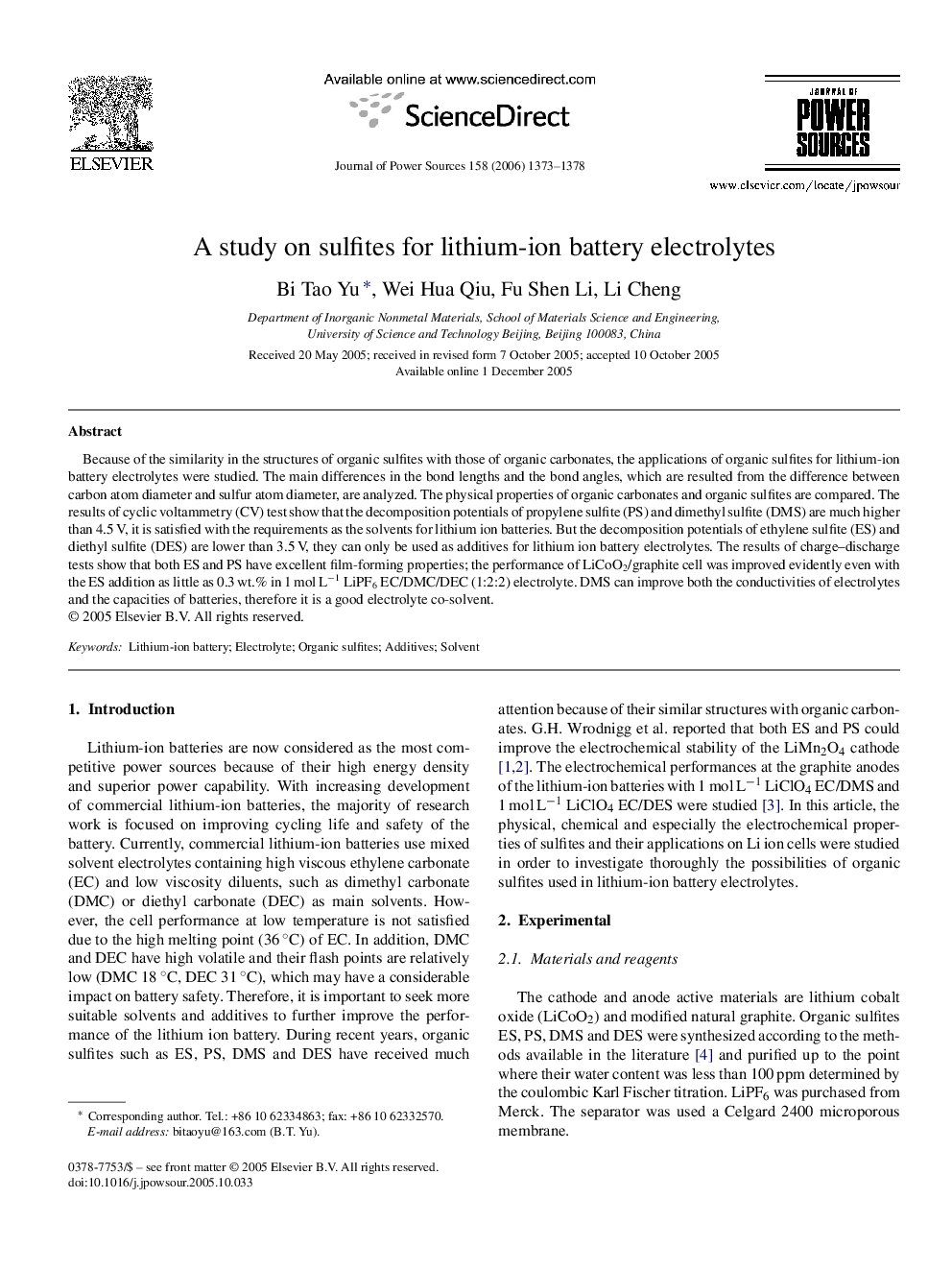| Article ID | Journal | Published Year | Pages | File Type |
|---|---|---|---|---|
| 1287412 | Journal of Power Sources | 2006 | 6 Pages |
Because of the similarity in the structures of organic sulfites with those of organic carbonates, the applications of organic sulfites for lithium-ion battery electrolytes were studied. The main differences in the bond lengths and the bond angles, which are resulted from the difference between carbon atom diameter and sulfur atom diameter, are analyzed. The physical properties of organic carbonates and organic sulfites are compared. The results of cyclic voltammetry (CV) test show that the decomposition potentials of propylene sulfite (PS) and dimethyl sulfite (DMS) are much higher than 4.5 V, it is satisfied with the requirements as the solvents for lithium ion batteries. But the decomposition potentials of ethylene sulfite (ES) and diethyl sulfite (DES) are lower than 3.5 V, they can only be used as additives for lithium ion battery electrolytes. The results of charge–discharge tests show that both ES and PS have excellent film-forming properties; the performance of LiCoO2/graphite cell was improved evidently even with the ES addition as little as 0.3 wt.% in 1 mol L−1 LiPF6 EC/DMC/DEC (1:2:2) electrolyte. DMS can improve both the conductivities of electrolytes and the capacities of batteries, therefore it is a good electrolyte co-solvent.
